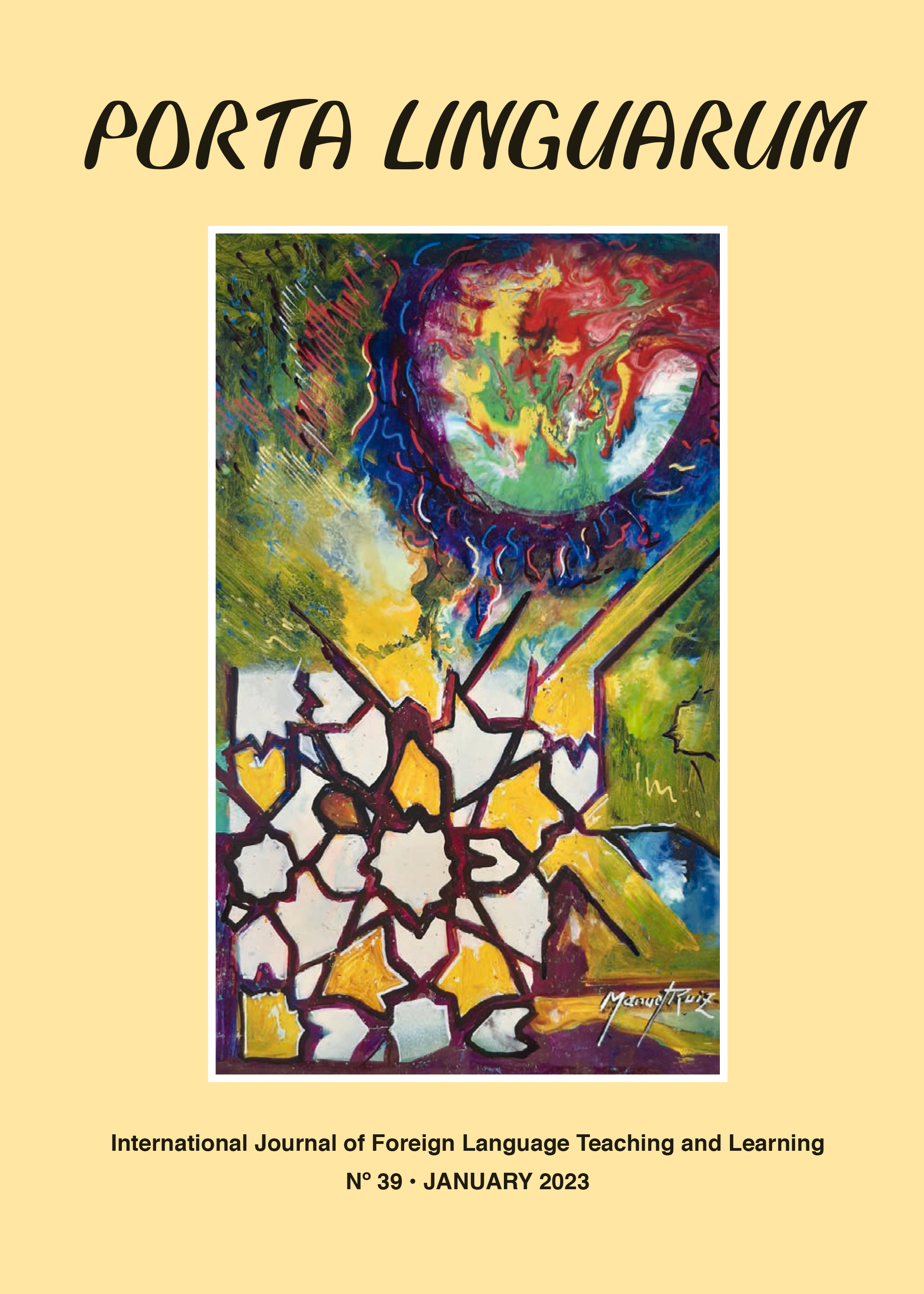Explaining listening comprehension among L2 learners of English: The contribution of vocabulary and grammar knowledge
DOI:
https://doi.org/10.30827/portalin.vi39.22286Keywords:
vocabulary knowledge, grammar knowledge, second language listening comprehensionAbstract
This study aims to explore the relative importance of vocabulary and grammar knowledge in explaining success of L2 learners’ listening comprehension. 40 Chinese learners of English who were studying in a UK university participated in the study. L2 learners’ vocabulary knowledge was measured through a receptive aural vocabulary test and their grammar knowledge was measured through an aural grammar test. The Cambridge Preliminary English Test (PET) listening section was adopted to measure L2 learners’ listening comprehension proficiency. Results from correlation analysis showed that both vocabulary and grammar measures correlated with L2 listening (r = .69 and r = .75 respectively). Hierarchical regression analyses showed that both measured jointly explained 72.2% of the variance in the listening score and that each measure had its unique contributions to L2 listening. It was also found that the grammar measure explained more of the variance in L2 listening than the vocabulary measure. These results demonstrated the importance of possessing L2 vocabulary and grammar knowledge in benefiting learners’ listening comprehension.
Downloads
References
Andringa, S., Olsthoorn, N., Beuningen, C., Schoonen, R., & Hulstijn, J. (2012). Determinants of success in native and non-native listening comprehension: An individual differences approach. Language Learning, 62, 49-78.
Bachman, L. F., & Palmer, A. (2010). Language assessment in practice. Oxford: Oxford University Press.
Bishop, D. V. M. (2003). The Test for Reception of Grammar version 2. London: Pearson.
Bloomfield, A.,Wayland, S.,Rhoades, E.,Blodgett, A., Linck, J., & Ross, S. (2010). What makes listening difficult? Factors affecting second language listening comprehension. Retrieved from https://www.researchgate.net/publication/277788621.
Bonk, W. (2000). Second language lexical knowledge and listening comprehension. International Journal of Listening, 14, 14-31.
Buck, G. (2001). Assessing listening. Cambridge: Cambridge University Press.
Cai, H. (2020). Related lexical and syntactic knowledge to academic English listening: The importance of construct representation. Frontiers in Psychology, 11: 494. DOI: 10.3389/fpsyg.2020.00494.
Clahsen, H., & Felser, C. (2006). Grammatical processing in language learners. Applied Psycholinguistics, 27, 3-42.
Field, J. (2013). Cognitive validity. In A. Geranpayeh, & L. Taylor (Eds.), Examining listening: Research and practice in assessing second language listening (pp. 77 - 151). Cambridge: Cambridge University Press.
Leonard, K. R. (2019). Examining the relationship between decoding and comprehension in L2 listening. System, 87, 14-25.
Macaro, E., Graham, S., & Woore, R. (2016). Improving foreign language teaching: towards a research-based curriculum and pedagogy. Oxon: Routledge.
Masrai, A. (2019). Vocabulary and reading comprehension revisited: Evidence for high-, mid-, and low-frequency vocabulary knowledge. SAGE Open, April-June 1-13. DOI: 10.1177/2158244019845182.
Matthews, J. (2018). Vocabulary for listening: Emerging evidence for high and mid-frequency vocabulary knowledge. System, 72, 23-36.
McLean, S., Kramer, B., & Beglar, D. (2015). The creation and validation of a listening vocabulary levels test. Language Teaching Research, 19, 741-760.
Nation, I. S. P. (2006). How large a vocabulary is needed for reading and listening? Canadian Modern Language Review, 63, 59-81.
Nation, I. S. P. (2012). The BNC/COCA word family lists (17 September 2012). Unpublished paper. Available at: www.victoria.ac.nz/lals/about/staff/paul-nation.
Staehr, L. S. (2009). Vocabulary knowledge and advanced listening comprehension in English as a foreign language. SSLA, 31, 577-607.
Vafaee, P., & Suzuki, Y. (2019). The relative significance of syntactic knowledge and vocabulary knowledge in second language listening ability. Studies in Second Language Acquisition, 42 (2), 383-410. DOI: 10.1017/S0272263119000676.
Vandergrift, L., & Baker, S. (2015). Learner variables in second language listening comprehension: An exploratory path analysis. Language Learning, 65, 390-416.
Wallace, M. P. (2020). Individual differences in second language listening: Examining the role of knowledge, metacognitive awareness, memory, and attention. Language Learning. DOI:10.1111/lang.12424.



















